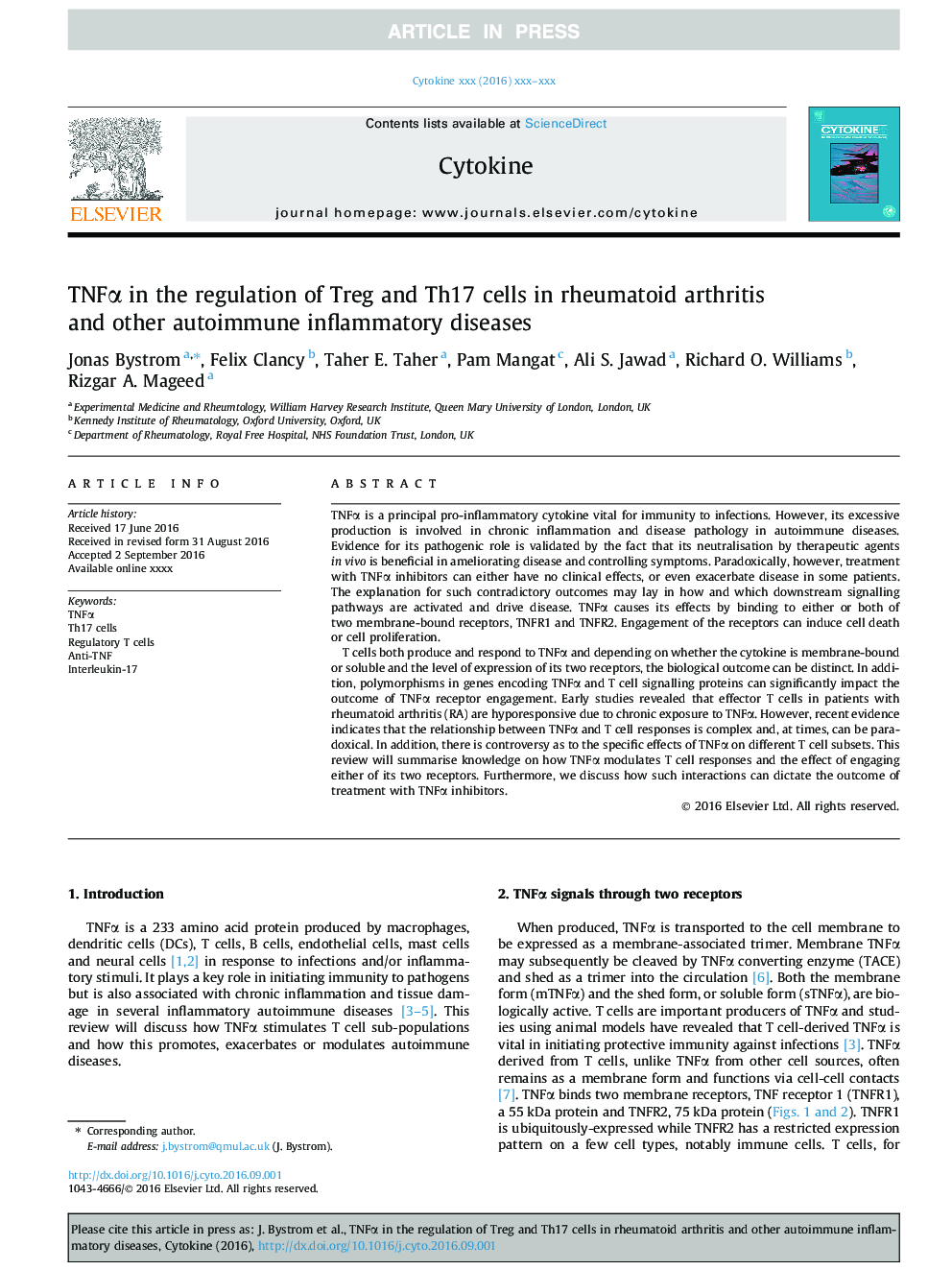| Article ID | Journal | Published Year | Pages | File Type |
|---|---|---|---|---|
| 8629417 | Cytokine | 2018 | 10 Pages |
Abstract
T cells both produce and respond to TNFα and depending on whether the cytokine is membrane-bound or soluble and the level of expression of its two receptors, the biological outcome can be distinct. In addition, polymorphisms in genes encoding TNFα and T cell signalling proteins can significantly impact the outcome of TNFα receptor engagement. Early studies revealed that effector T cells in patients with rheumatoid arthritis (RA) are hyporesponsive due to chronic exposure to TNFα. However, recent evidence indicates that the relationship between TNFα and T cell responses is complex and, at times, can be paradoxical. In addition, there is controversy as to the specific effects of TNFα on different T cell subsets. This review will summarise knowledge on how TNFα modulates T cell responses and the effect of engaging either of its two receptors. Furthermore, we discuss how such interactions can dictate the outcome of treatment with TNFα inhibitors.
Related Topics
Life Sciences
Biochemistry, Genetics and Molecular Biology
Endocrinology
Authors
Jonas Bystrom, F.I. Clanchy, Taher E. Taher, Pam Mangat, Ali S. Jawad, Richard O. Williams, Rizgar A. Mageed,
